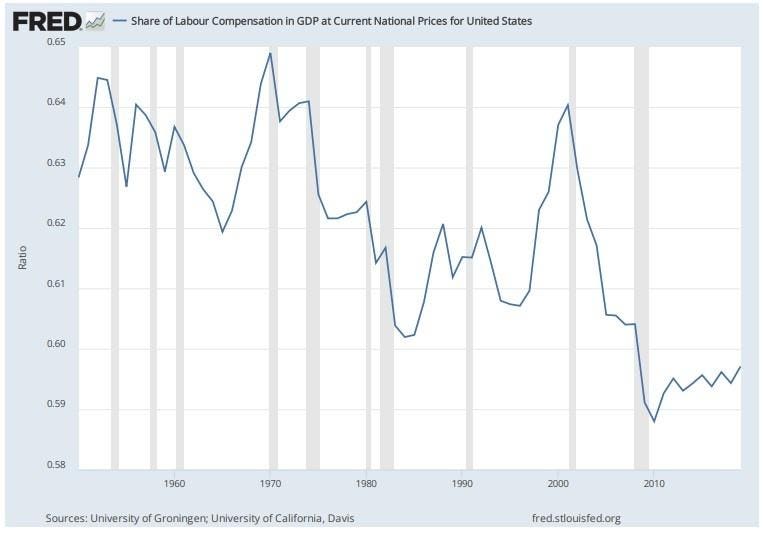The ongoing debate regarding the impact of Generative artificial intelligence (Gen AI) models on the U.S. labor market is a contentious issue. While some believe that automation will lead to widespread job losses across all skill levels, others argue that new occupations will emerge, offsetting any potential losses. A West Coast venture capitalist even suggested that in the future, there will only be two types of jobs: those that tell machines what to do and those that are told by machines what to do.
Historical data supports the argument that technological advancements have had mixed effects on the labor market. The mechanization of agriculture drastically reduced the need for human labor, while the adoption of computers in the late 20th century increased the demand for college-educated workers. As a result, wage differentials between high-skilled and low-skilled workers widened, leading to a reduction in the share of labor income relative to GDP. Experts attribute this shift to weaker productivity growth and the deceleration in the creation of new tasks due to technological innovation.
Gen AI differs from previous technologies in its potential to impact a wider array of jobs. According to Goldman Sachs’ economists, roughly two-thirds of U.S. occupations are exposed to automation by AI, with a quarter to half of the workload potentially being replaced. Despite the optimism surrounding the productivity benefits of Gen AI, it typically takes time for businesses to adopt new technologies fully. Larger firms were initially more likely to deploy AI, but recent trends show higher rates of usage in both large and small firms, thanks to tools like ChatGPT that make it more accessible, particularly for smaller businesses.
The deployment of AI tools like ChatGPT is prevalent in various business functions, such as customer service, cyber security, and fraud management. However, the usage among professional workers with more complex needs is less widespread. The advantage of large language models like Gen AI lies in their ability to process vast amounts of data quickly. While they can improve worker performance, humans still excel in situations where limited data and prior experiences are significant factors. MIT economist David Autor remains optimistic about Gen AI’s potential to give non-college-educated workers the skills for higher-wage jobs, potentially reducing income inequality and moderating stock market returns in the long run.















